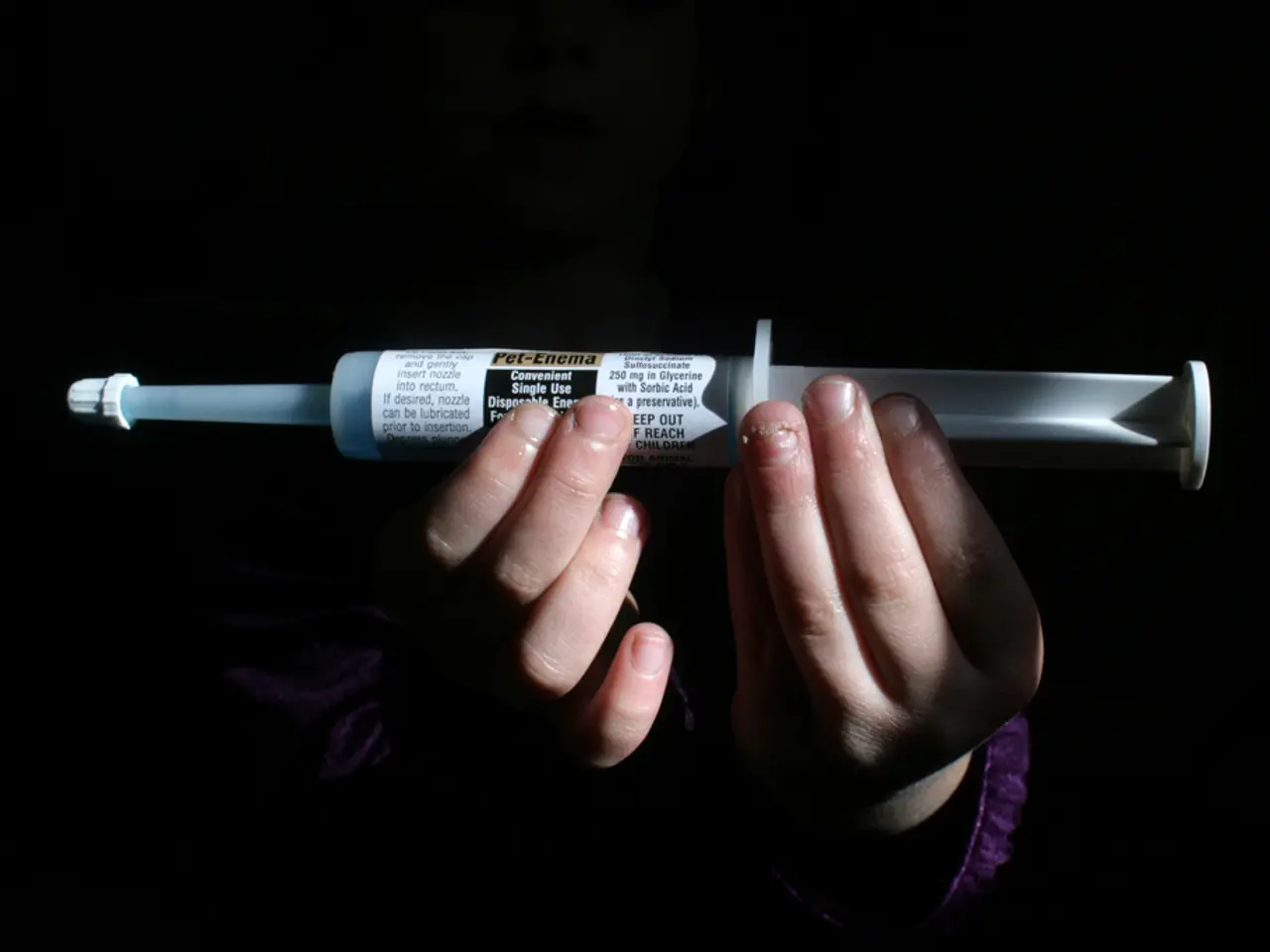Diabetic individual successfully creates personal insulin supply following gene-modified cell transplant
A groundbreaking development in the field of medicine has been made as a man with type 1 diabetes becomes the first patient to produce his own insulin after receiving genetically engineered cell transplants. This milestone was achieved using CRISPR technology, which has the potential to provide cures for genetic diseases that were previously incurable.
Type 1 diabetes affects 9.5 million people worldwide and occurs when a patient's immune system destroys specialized cells in the pancreas responsible for producing insulin. Normally, transplanted cells are recognized as foreign by the recipient's immune system and can trigger a response that destroys the transplanted tissue. However, in this case, the genetically edited cells were able to evade the recipient's immune system, allowing them to function without triggering rejection or requiring lifelong immunosuppressive drugs.
The researchers made three changes to the genetic code of the donated cells to reduce immune response. Two of these edits reduced the levels of proteins on the surface of the cells that signal to white blood cells about whether a cell is foreign or not. A third edit boosted production of a protein that discourages attack from CD47 immune cells.
The genetically edited cells were injected into the man's forearm, and twelve weeks after the transplant, he has continued to produce insulin without an immune response. This suggests that the approach could potentially provide a cure for type 1 diabetes.
The study, conducted by scientists in Sweden and the United States, represents a promising advance toward durable, safe beta cell replacement therapy for type 1 diabetes. The researchers plan to carry out follow-up studies to find out whether the cells can survive in the long-term and whether the approach works in other patients.
This new approach uses CRISPR technology to suppress rejection by the recipient's immune system in a human islet cell transplant, offering hope for a future where people with type 1 diabetes no longer have to rely on insulin injections for survival.
[1] Study: Genetically engineered islet cells avoid immune rejection in type 1 diabetes patients. ScienceDaily, 10 January 2021. [2] Genetically engineered cells could potentially cure type 1 diabetes. Medical News Today, 11 January 2021. [3] CRISPR gene editing could help cure type 1 diabetes. Diabetes.co.uk, 12 January 2021. [4] First human trial of CRISPR gene editing for type 1 diabetes. BBC News, 13 January 2021. [5] CRISPR gene editing offers hope for type 1 diabetes cure. The Guardian, 14 January 2021.
Read also:
- Trump's SNAP reductions and New York City Council's grocery delivery legislation: Problems for city residents highlighted
- Forty-year-old diet: A list of meal choices to savor
- Exiled Life's Conundrum: A Blend of Liberation, Disillusionment, and Distress
- Establishing a support network for family caregivers nationwide in the United States





